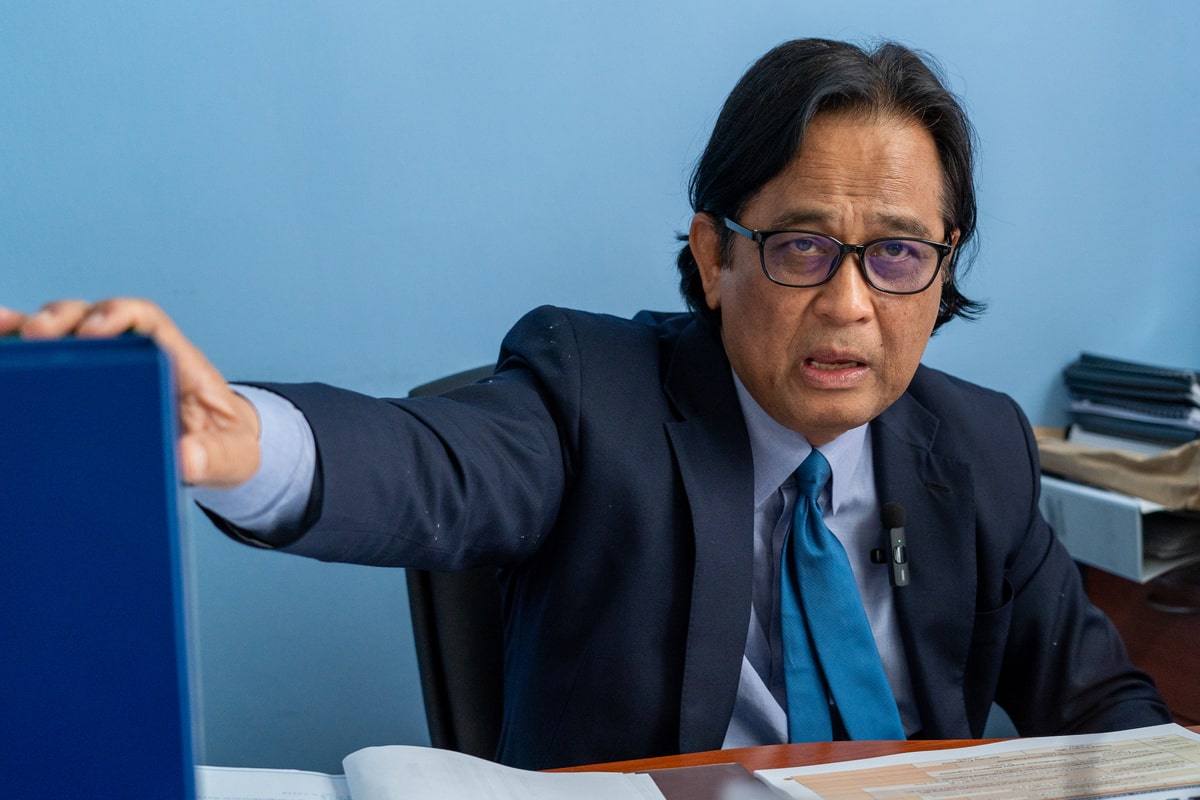SUNGAI BULOH, April 26 — Prof Dr Zainuddin Md Wazir from Universiti Teknologi MARA (UiTM) believes that although universities and the Ministry of Health (MOH) should work together, both entities have separate roles to play.
Dr Zainuddin – who is director of the cardiothoracic surgery postgraduate programme by a UiTM collaboration with the National Heart Institute (IJN) – said the parallel pathway conflict began when the MOH decided to enter academia.
“All of us should work together – University and KKM (Kementerian Kesihatan Malaysia) have a role,” Dr Zainuddin told CodeBlue in an exclusive interview at UiTM’s Faculty of Medicine in its Sungai Buloh Campus last Monday.
However, he highlighted the “fundamental” issue of their separate roles, saying that his “core business” is academia at 60 per cent, compared to service at 40 per cent.
On the other hand, the role of the MOH, he said, is primarily service at 80 per cent, while teaching only comprises 20 per cent.
Dr Zainuddin was responding to CodeBlue’s question on whether the parallel pathway conflict was rooted in a fight between MOH and universities to control the production of specialist doctors who would then enter their respective health care facilities – which he denied.
Budget 2024 allocated RM1.7 billion for nine university hospitals, comprising about 14 per cent of the Ministry of Higher Education’s RM12.2 billion budget.
Dr Zainuddin – who is the Head of the Department of Cardiovascular and Thoracic Surgery at UiTM’s Faculty of Medicine – said he knows the details of academia and designing an academic programme, including exams and licensing: “I know how to get things done – documentation”.
He also stressed that although health care professionals in the MOH are “good teachers” to both undergraduate and postgraduate medical students, they do not necessarily know the ‘nitty gritty” of developing an academic programme that he said is the “core business” of academia.
“When KKM wants to do this, that’s where the trouble starts,” he said, adding that this was his personal opinion.
“Look at the fundamental mistake – I would say ‘mistake’ – you know the programme, you take the programme – whatever abroad, easy to do – you take because you don’t want to do this documentation. Very messy. But when you do not do the documentation, you don’t know the details.”
Without specifying the MOH’s cardiothoracic surgery parallel pathway programme with the Royal College of Surgeons of Edinburgh (RCSEd), Dr Zainuddin pointed out that it was the Malaysian Medical Council (MMC) that decided not to give recognition.
“Based on what? Based on the detailed report they get. And the criteria they have. They have criteria to follow. So when their checklists buat buat tak isi, how can they [MMC] give [recognition]? They [MMC] are doing the right thing for the country. Why? In the end, the regulatory body is to protect safety, competency.”
He, however, stressed that he was not saying that parallel pathway trainees were “not good” or “not competent”, only that their medical specialty training was “not done properly”.
“So why not we help them by getting it done properly? But how can you accept the degree which is not even recognised in the UK, not recognised in any part of the world? And they claim, ‘I recognise, I recognise, I recognise’. That is a very dangerous statement.
“I’m not the one who says this; it’s MMC who said they are not recognised”.
Last December, MMC, which regulates the medical profession, rejected applications by four pioneer graduates of the RCSEd cardiothoracic surgery parallel pathway programme to register as specialists on the National Specialist Register (NSR).
MMC president Dr Muhammad Radzi Abu Hassan, who is also the Health director-general in the MOH, then issued a statement last March 25 to claim that the MMC had never, “at any time”, recognised the Fellowship of the Royal College of Surgeons of Edinburgh (FRCS Ed) in Cardiothoracic Surgery.
Dr Zainuddin touted the “good” UiTM-IJN cardiothoracic surgery postgraduate programme – the first and only such local programme in Malaysia – as the “best solution for the country”, amid a shortage of cardiothoracic surgeons.
He said UiTM knows the needs in running the programme and the importance of following rules and regulations, “rather than you open the floodgate of recognising a second-class programme”.
“Why recognise a second-class programme or something that is not recognised in the UK? They claim many things – they claim you can work.
“But they claim you can work as a registrar, work as a fellow. Everybody can do that, but not as a specialist; it’s not the same level. So that is fundamental: we have to be clear on the bigger picture of the country”.
In a statement last Sunday, the Malaysian Association for Thoracic and Cardiovascular Surgery (MATCVS) insisted that the FRCS Ed in Cardiothoracic Surgery is recognised by the United Kingdom’s General Medical Council (GMC), besides claiming that the UK GMC has confirmed that graduates with that qualification are eligible for specialist registration in the UK.
Dr Zainuddin said the solution to producing more specialist doctors for the country is to enhance local postgraduate medical programmes. After graduation from such programmes by local universities, graduates can choose to sit additionally for overseas fellowships if they wish.
“I think it’s clear here – I’m not against anybody’s programme, but everybody has to follow the rules of the game”.
After last Wednesday’s publication of the first story from Dr Zainuddin’s interview with CodeBlue, several former students of the Allianze University College of Medical Sciences (AUCMS) came out on Facebook to condemn Dr Zainuddin, who had founded the private medical education institution in Kepala Batas, Penang, that closed a decade ago in 2014 due to financial problems. Dr Zainuddin did not respond to CodeBlue’s requests for comments on the fresh criticism from affected ex-AUCMS students.








